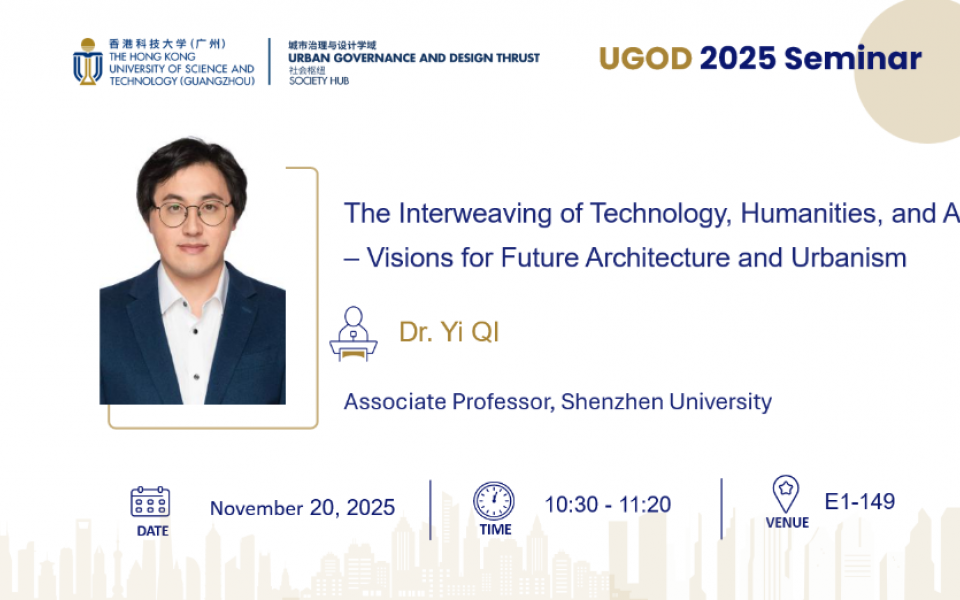UGOD Seminar | The Interweaving of Technology, Humanities, and Art – Visions for Future Architecture and Urbanism
Supporting the below United Nations Sustainable Development Goals:支持以下聯合國可持續發展目標:支持以下联合国可持续发展目标:
Architecture, as an ancient yet ever-evolving discipline, has continually evolved alongside the development of human society. The integration of science, technology, and art remains its enduring hallmark. With the emergence of new technologies such as AI, big data, and autonomous driving, the spatial paradigms of future architecture and cities are being reshaped.
This lecture will analyze the distinctive creative concepts of architects throughout history by examining numerous classic architectural works. It will share the unique charm of architecture at the intersection of technology, humanities, and art, while exploring the aesthetic values and technological innovations embodied in various case studies. Building on this foundation, the speaker will further incorporate contemporary advancements in technology to examine scenarios and creative works related to future cities from a philosophy of science, technology, and society (STS) perspective. The aim is to present to the audience a mindset and pathway for interdisciplinary integrated creative design.
Dr. Qi Yi is an architect, educator, tenured associate professor, and Ph.D. supervisor at Shenzhen University (SZU) and guest Ph.D supervisor at the Hong Kong University of Science and Technology. He serves as the deputy dean of the School of Architecture and Urban Planning at SZU. His research areas encompass architectural design and theory, computational design and fabrication, and healthcare architecture. In recent years, he has focused on future architecture and urbanism, exploring the application of AI, big data, and robotics in future scenarios.
Qi is a member of the UIA Public Health Group and the UIA Work Programme on Public Health, actively engaging with various professional organizations and maintaining strong connections with numerous international universities and industries. He has hosted over 30 scientific research projects, including those funded by the National Natural Science Foundation of China (NSFC), and has published more than 30 academic papers. His received include more than 40 awards.
